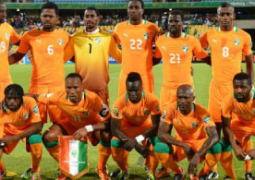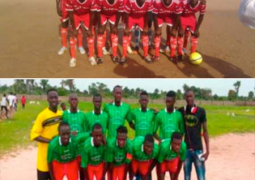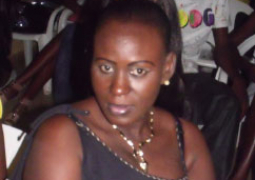
The
United Nations Special Rapporteur on the Sale and Sexual Exploitation of
Children, Maud de Boer-Buquicchio has warned children to desist from spreading
sexual images of themselves on the internet thinking that it would remain
between friends.
Maud
wraps up her nine days assessment of the scope of sale and sexual exploitation
in The Gambia – from October 19th – 21st.
“One
of the emerging issues of many countries of the world is the issue of sexual
exploitation and abuse of children through the internet where children are at
risk and it clearly shows there is a need for further awareness raising,” she
said at a press conference at UN House in Bakau.
According
to her, this will need more work from the government, but also needs the
involvement of the private sector and in particular the Internet service
providers.
“The
sector is developing very fast and children need to know what risks they are
being exposed to – not just to be exposed to grooming, it’s also about images
being spread on the internet when they inadvertently believe that they can
share sexualized images of themselves thinking that it will remain between
friends. That can leave a very traumatic impact on children who are subjected
to that kind of exploitation.”
Discussing
the impact of a culture of silence in Gambian society, the special rapporteur
said family interference has caused a lot of crimes to go unreported and even
withdrawn.
According
to her, if the child is willing to make a declaration to the police, very often
it yields results of pressure from the family and these cases are subsequently
dropped.
“The
complaints have been withdrawn, there were settlements amongst families of
perpetrators and victims because of something that has to do with stigma and
they don’t want to be identified and the matters have not been pursued in
court. This is a very big issue and therefore there is a need for
desensitisation of society to allow children to speak up to make parents
understand that these are crimes that should be prosecuted.”
Regarding
sexual exploitation in the tourism sector, she shared her findings she gathered
from hotel managers, tourist operators and tourist taxi drivers. She urges for
high vigilance from parents who allow their children to visit tourist
development areas for business purposes. She noted that some tourists are with
the thought that Gambian girls and boys are easy to be preyed.
“Sometimes
the parents are complicit – they perhaps start asking their children to sell
bananas on the beach or fruits and when it comes to further financial gains by
selling their bodies, they are not necessarily stopped by their parents. It is
important to sensitize the whole of the population.”
The
UN Special Rapporteur said from her discussions with tourist operators, hotel
managers, taxi drivers those people feel that they have a possibility to
denounce sexual exploitation in the sector, but are hindered by the culture of
silence.
She
discloses that the abusers are now moving on to standardised places where they
can conveniently do the sexual exploitation.
“It’s
very important that the whole licensing system in relation to those kind of
places is properly adjusted to track down those who have such things to do.”
She
blames the government for its weakness in terms of prosecution of certain
crimes that are prohibited by laws of the land such as child marriage – which
she believes has been occurring and there has never been any prosecution.
She calls for better coordination between government agencies and the civil society for quick reactions to the sexual exploitation of children. However, she acknowledges the lack of resources, which affect the progress of the government including the failure of not sustaining the “hot alert” calling system that used to give victims the opportunity to swiftly report such crimes to the police.
Source:
The Chronicle




